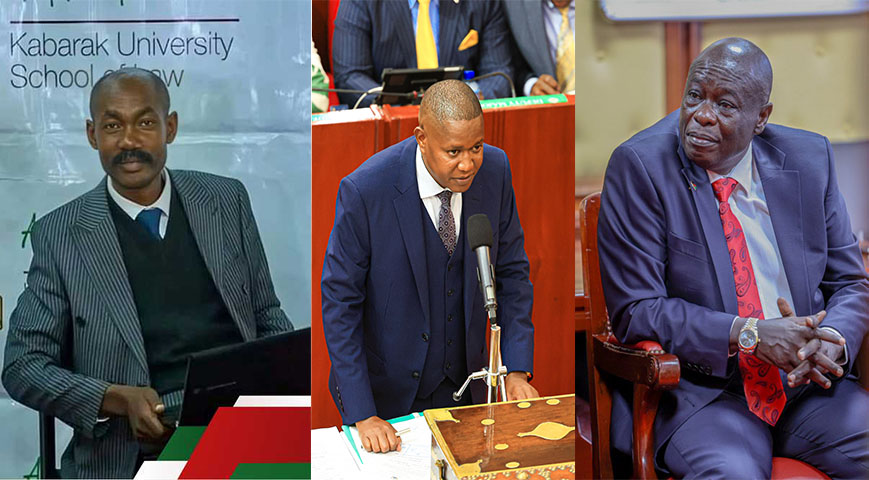A heated session unfolded in the Senate on Wednesday evening during Deputy President Rigathi Gachagua's impeachment trial.
After hours of submissions, tensions peaked when Gachagua's legal team cross-examined Kibwezi West MP Mwengi Mutuse, who initiated the impeachment motion.
Advocate Elisha Ongoya challenged Mutuse over allegations that Gachagua amassed a Ksh.5.2 billion fortune since becoming Deputy President.
The advocate questioned how Mutuse arrived at this figure, as it was one of the 11 critical grounds for impeachment. Mutuse, despite several attempts to explain, admitted the figure was based on estimates of land and property values attributed to Gachagua.
During the heated exchange, Ongoya questioned Mutuse's expertise, asking whether he could appraise property values or simply rely on his assumptions. Mutuse pointed to the "reasonable man's test," citing land values in different regions to justify his estimates.
Did you read this?
The trial also touched on the ownership of Vipingo Beach Resort, a primary focus of the impeachment. Ongoya revealed documents showing that the property is owned by the estate of Gachagua’s late brother, Nderitu Gachagua, undermining claims that the Deputy President held ownership.
Further, Mutuse was pressured to provide evidence that Gachagua used proxies in a Ksh.3.7 billion mosquito net tender, a deal alleged to be marred by corruption. The motion claims that Gachagua influenced the Kenya Medical Supplies Authority (KEMSA) to award the tender fraudulently.
Additional accusations include Gachagua’s rapid acquisition of properties like Outspan Hotel, Olive Gardens, Queens Gate Apartments, and significant land holdings. Mutuse also alleged misuse of public funds, citing taxpayer losses due to expensive renovations of Gachagua’s official residences and luxurious event spending.
The trial continues with the DP's defense team refuting these claims, pushing for clearer evidence to substantiate the accusations.









